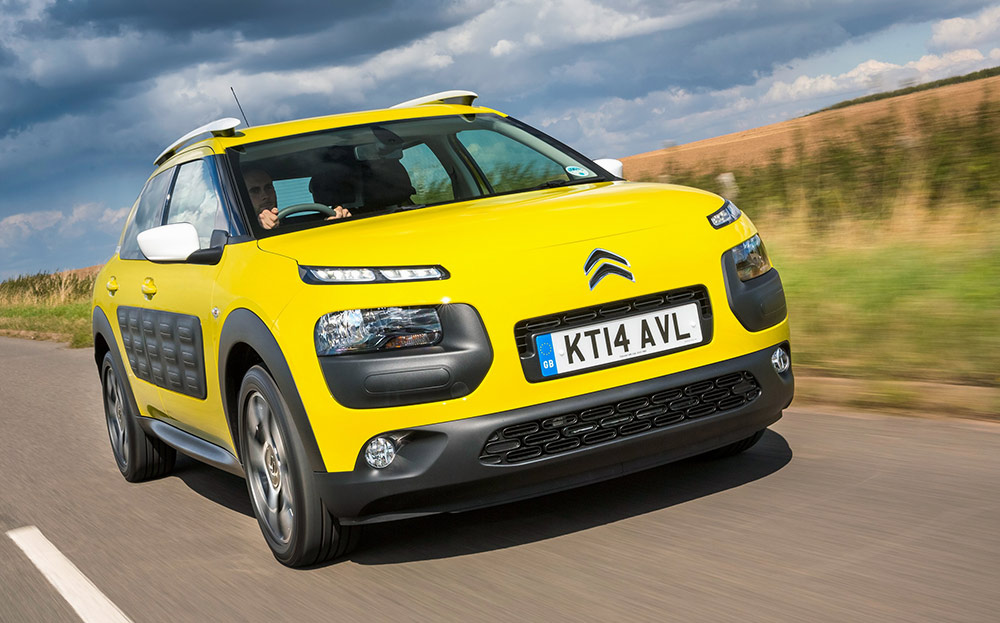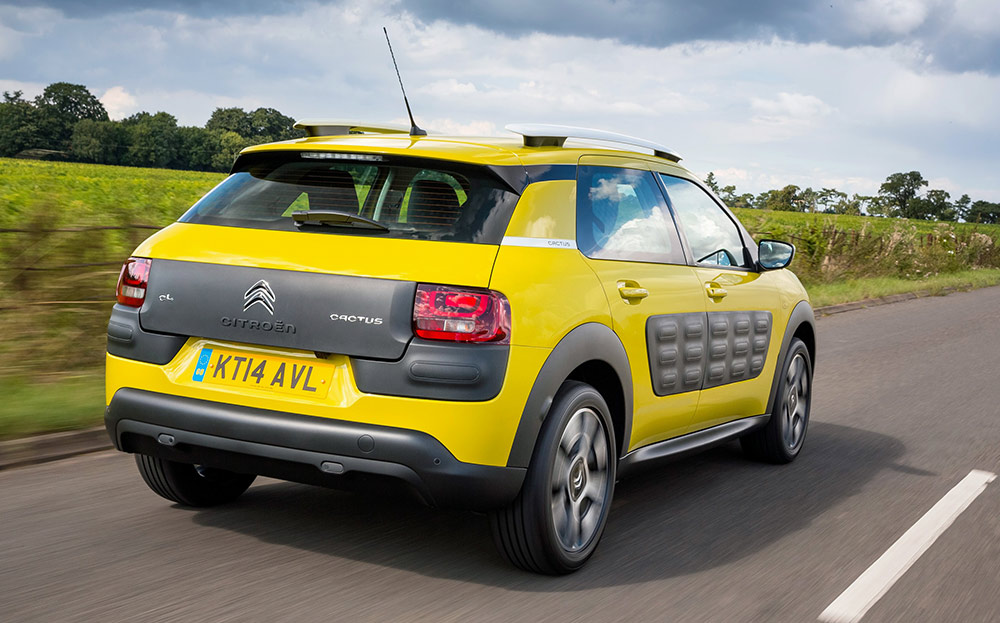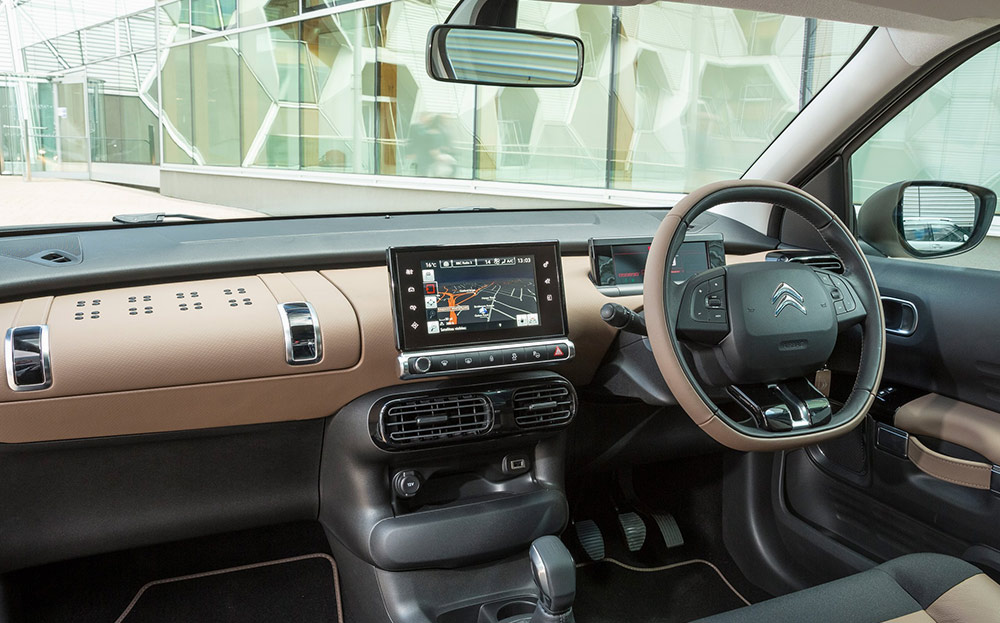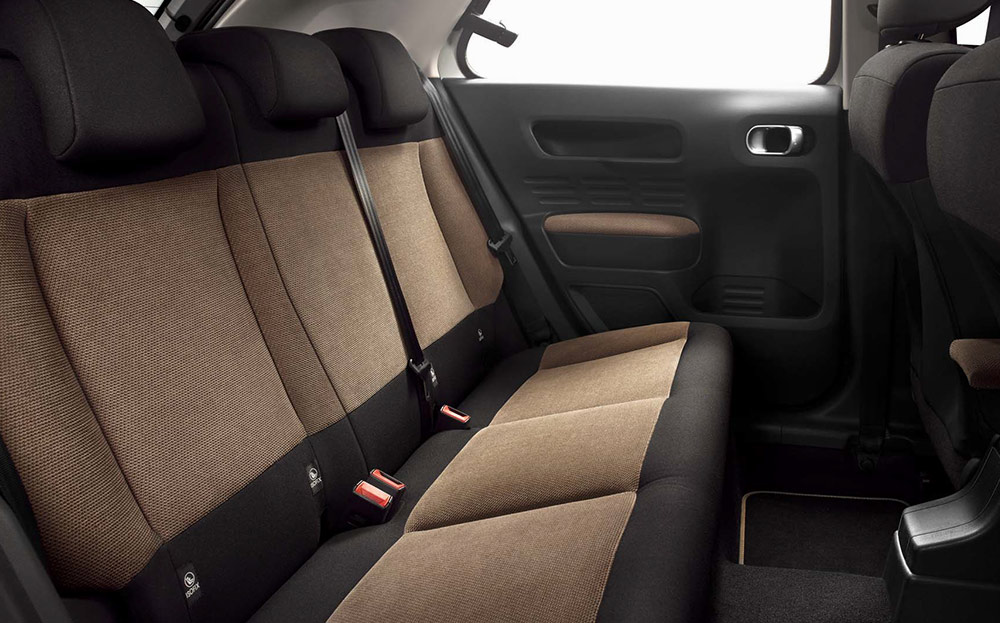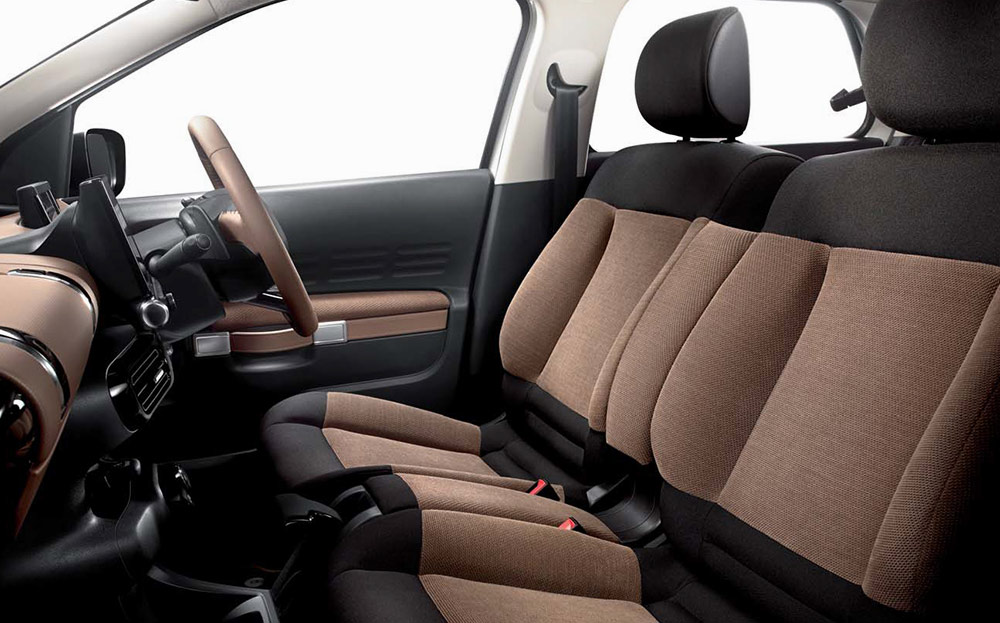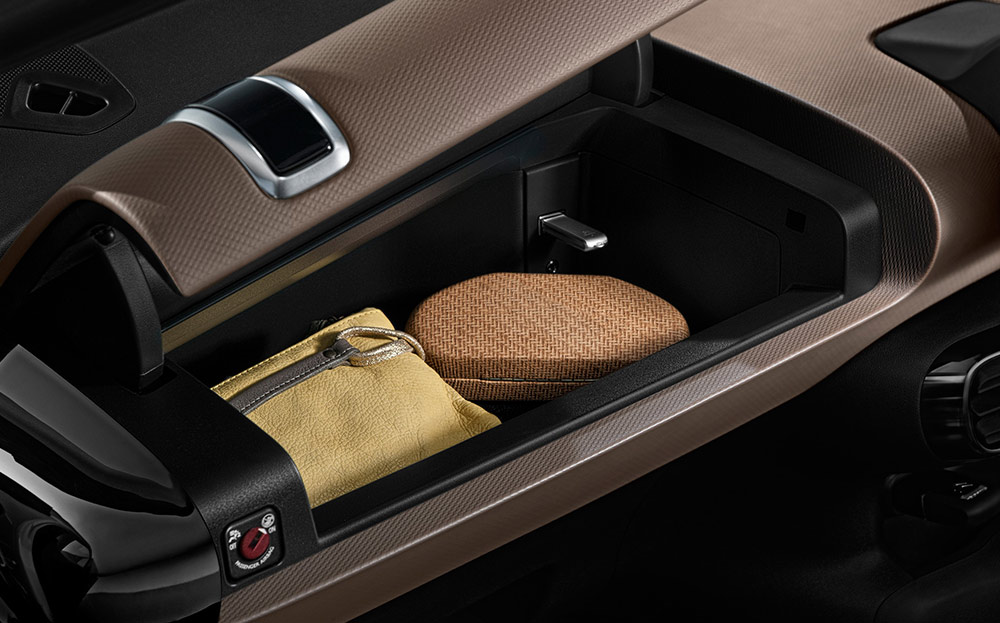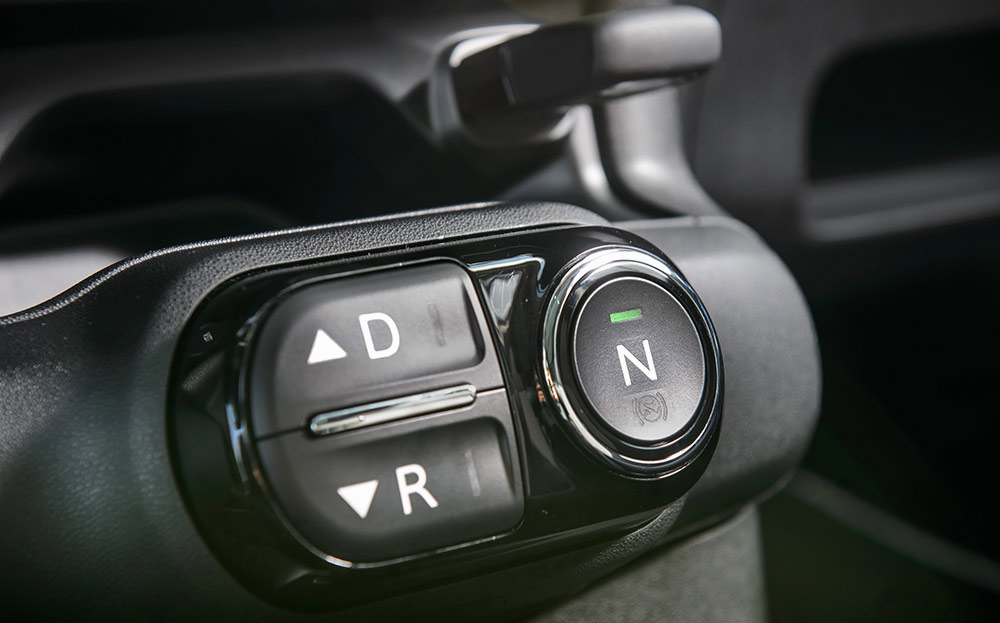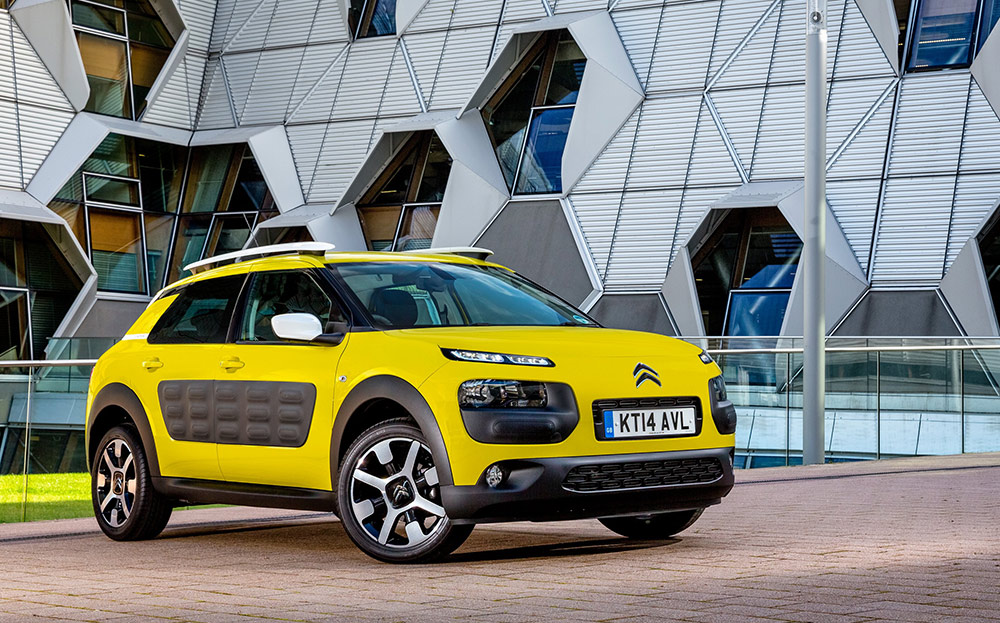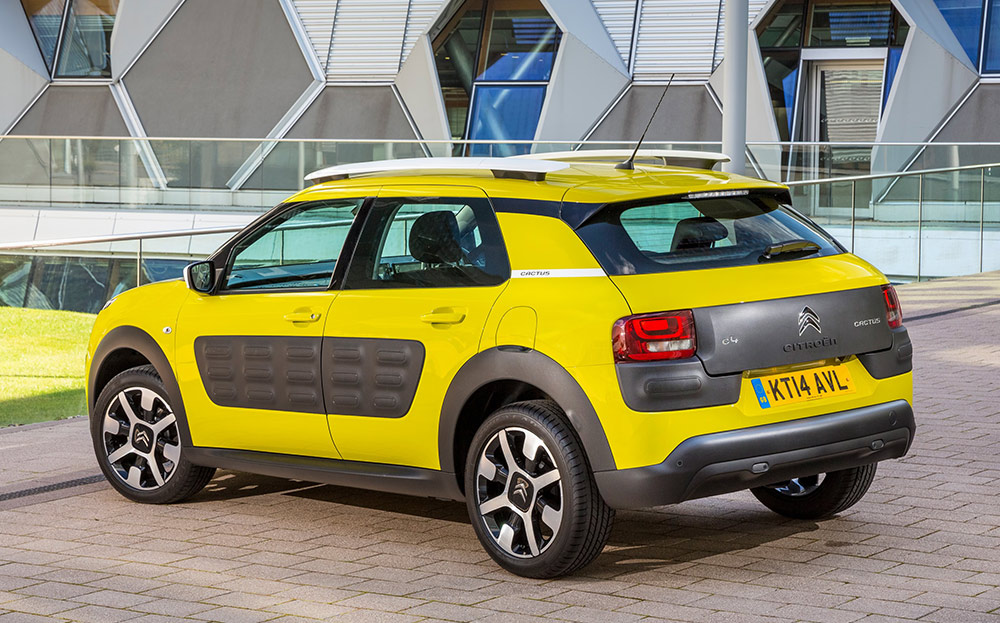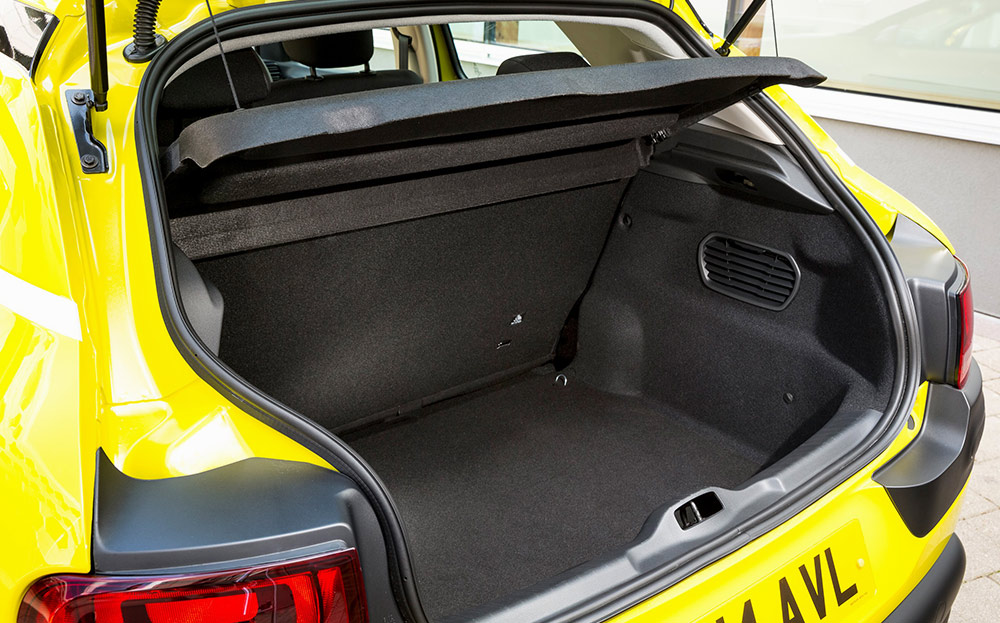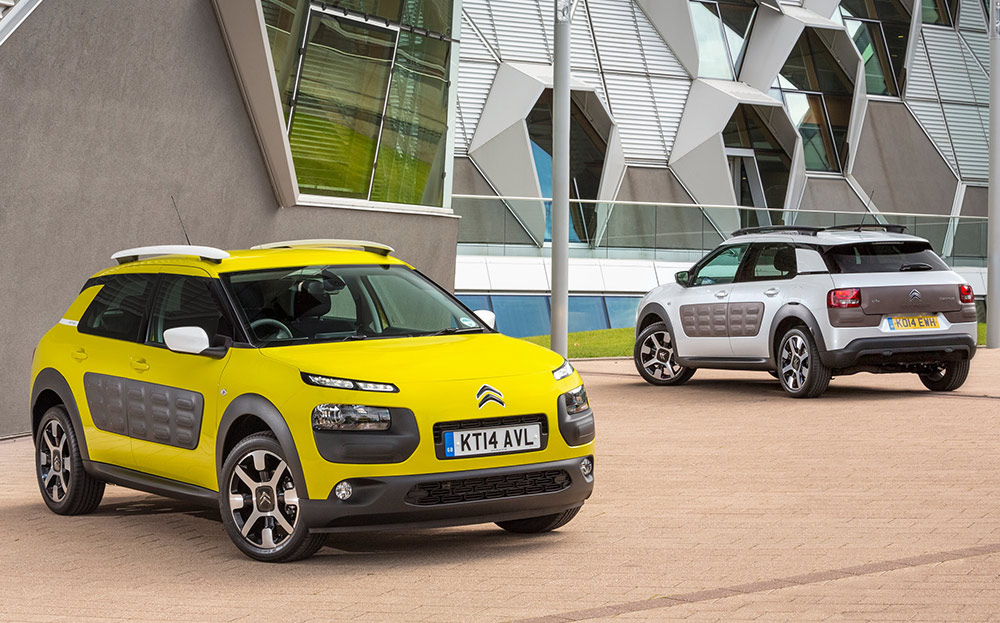The Clarkson Review: 2016 Citroën C4 Cactus
Mr Quirky, I’m here to burst your bubble wrap
I ALWAYS thought that the letters “CV” used by Citroën for the hateful 2CV stood for Chevaux. But I learnt last week that, actually, CV stands for Chevaux-Vapeur. Which so far as I can tell means “vaporised horses”.
And I wonder if the weird-beard vegetablist nutters who made this stupid little car their own knew that. I suspect they didn’t. Because a vaporised horse is not the sort of thing that goes down well at a peace-and-love bong festival. It’d be like turning up in a Ford Mashed Badger.
The 2CV was originally designed, so the story goes, so that the French peasantry could drive across a ploughed field without breaking any eggs that happened to be on the passenger seat. It was cheap and comfortable, and with its folding roof, good fun. It was a French Fiat 500, an onionised Mini, with a stripy jumper.
View the Citroën C4 Cactus cars for sale on driving.co.uk
Until the eco-loonies started using it as a statement to show the world they didn’t believe in oil or beefburgers, I always rather liked it, with its silly gearlever sticking out of the dashboard and its golden-wedding-anniversary-at-the-village-hall seating.
It was typically Citroën, a company that had always looked at what the rest of the world was doing and then did the complete opposite. It was belligerence, really, but often it produced some truly brilliant ideas that everyone else then had to copy. Using the body as the chassis is a pretty good example of this. Swivelling headlights is another.
This sort of thinking made Citroën a uniform for people who were a bit odd. Poets and art historians drove them. The brilliant boy who excelled at school and then became a plumber. He would have one too. Stockbrokers, accountants, bank managers — they didn’t. Citroën was a haven for those who were going through life the same as everyone else, but not quite.
One of my all-time favourite cars is the old Citroën CX Safari. It had a one-spoke steering wheel because every other car had two, three or four, and it had a cassette player mounted vertically between the seats because . . . why not? Actually, I’ll tell you why not; because after about a month the cassette slot would be jammed up with the bits of Double Decker chocolate bar that hadn’t fallen into a fold of your shirt.
Underneath, the Citroën was very different because it rode on a puddle of magic that meant no road-surface irregularities would be transmitted to the cabin. The downside of this system was a steering setup that had a mind of its own and brakes that worked like a switch. They were either fully off or fully on.
Once you became used to having a cassette player full of chocolate and a bruised nose from bumping your head into the windscreen every time you slowed down — oh, and indicators that didn’t self-cancel, as they weren’t operated from a stalk, because that would be too normal — you could genuinely fall in love with this car. It was just so weird.
At one point Citroën bought Maserati and made the beautiful and beguiling Bora, a supercar that mated a ton and a half of French oddballery to a healthy dollop of Italian unreliability. I’m told that when it worked — which was pretty much never — it was brilliant.
“I once drove a supertanker and it took three minutes to increase its speed from 13.8 to 13.9 knots. These are figures the C4 Cactus driver can only dream about”
But then, bit by bit, Citroën started to be absorbed into the Peugeot empire. The silliness was phased out and the cars became nothing more than rebadged Pugs. They became boring and normal, and the only way Citroën managed to sell any at all was through the power of breathy and frantic special-offer advertising campaigns. “Get 100% off and a chance to sleep with the wife of the boss on a Tuesday.” That sort of thing.
That’s why I was a little bit pleased to see it had launched a car called the C4 Cactus that had waded into the marketplace with a slab of what appeared to be bubble wrap down each side. “Yes,” I thought. “It’s gone belligerent and stupid again.”
The news gets better when you climb inside because this really doesn’t feel like any car you’ve seen before. The glass roof is one thing but the dash is something else. Principally because it doesn’t really have one. There’s a small box that tells you how fast you’re going and then there’s a sort of infotainment sat nav arrangement that does everything else. And I do mean everything. If you want to change any aspect of the car, you have to go into a sub-menu first. I’m amazed the company hasn’t put the indicator controls in there. That’d have been a very Citroëny thing to do.
It would also have been Citroëny to design a suspension system made from sewage. But we live in straitened times where the other bottom line is king so the C4 Cactus runs on exactly the same sort of suspension that you find in every other car. However, it is tuned to give a flavour of the past. This is a comfortable car — not as comfortable as the Vauxhall Zafira — but it’s a pretty nice place to be if you have a bad back.
But not if you are tall. If you are tall, you will hit your head a lot. This is because Citroën has fitted a low roof lining to house the passenger airbag. Which means you are forever banging your head into what is essentially a bomb. Not sure about that.
And then you will be infuriated by the glovebox, which is styled to look like a steamer trunk but isn’t as big as a pencil case, and then you will want to turn the temperature up or change the radio channel and that will take you half an hour because you can’t be bothered to read the instruction manual.
I must now moan about the driving position, which is fine if your arms and legs are exactly the same length. But mine aren’t and neither are yours, which means you’ll have to drive with your legs wide apart. This makes the car unsuitable for those who enjoy wearing short skirts.
Browse NEW or USED cars for sale on driving.co.uk
At some point you will put your foot down — to join a motorway, for example. And you will be extremely surprised by what happens next. Because what happens next is nothing at all. I once drove a supertanker and it took three minutes to increase its speed from 13.8 to 13.9 knots. These are figures the C4 Cactus driver can only dream about.
Which caused me to wonder for a little while what sort of car this actually is. Underneath, it’s a supermini but to look at, it’s more a sort of crossover. So your eyes are telling you it’ll be a snazzy performer with perhaps a soupçon of off-road ability while the rest of your head is saying that it’s just a school-run ’n’ supermarket car.
You can’t even get much of an idea from the price because that’s always 80% less than Citroën says it is, thanks to that week’s “everything must go” sale.
I really was hoping that the C4 Cactus would be quirky and odd and endearing but after a week with it, I’m afraid, it’s nothing more than a hatchback with bubble wrap on the side. Pity.
Comment below or write to us at driving@sunday-times.co.uk, or Driving, The Sunday Times, 1 London Bridge Street, London SE1 9GF.


